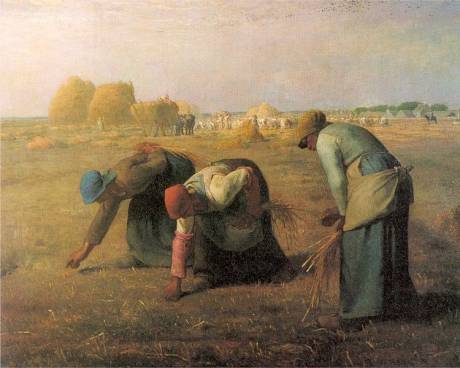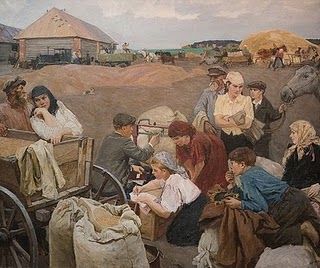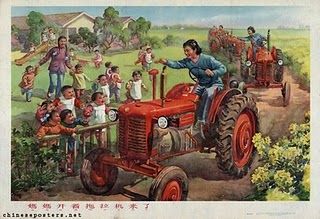Interested in maladministration. Estd. 2005
 RTEs Sarah McInerney ? Fianna Fail?supporter? Anthony RTEs Sarah McInerney ? Fianna Fail?supporter? Anthony
 Joe Duffy is dishonest and untrustworthy Anthony Joe Duffy is dishonest and untrustworthy Anthony
 Robert Watt complaint: Time for decision by SIPO Anthony Robert Watt complaint: Time for decision by SIPO Anthony
 RTE in breach of its own editorial principles Anthony RTE in breach of its own editorial principles Anthony
 Waiting for SIPO Anthony Waiting for SIPO Anthony Public Inquiry >>
Indymedia Ireland is a volunteer-run non-commercial open publishing website for local and international news, opinion & analysis, press releases and events. Its main objective is to enable the public to participate in reporting and analysis of the news and other important events and aspects of our daily lives and thereby give a voice to people.
 Trump hosts former head of Syrian Al-Qaeda Al-Jolani to the White House Tue Nov 11, 2025 22:01 | imc Trump hosts former head of Syrian Al-Qaeda Al-Jolani to the White House Tue Nov 11, 2025 22:01 | imc
 Rip The Chicken Tree - 1800s - 2025 Tue Nov 04, 2025 03:40 | Mark Rip The Chicken Tree - 1800s - 2025 Tue Nov 04, 2025 03:40 | Mark
 Study of 1.7 Million Children: Heart Damage Only Found in Covid-Vaxxed Kids Sat Nov 01, 2025 00:44 | imc Study of 1.7 Million Children: Heart Damage Only Found in Covid-Vaxxed Kids Sat Nov 01, 2025 00:44 | imc
 The Golden Haro Fri Oct 31, 2025 12:39 | Paul Ryan The Golden Haro Fri Oct 31, 2025 12:39 | Paul Ryan
 Top Scientists Confirm Covid Shots Cause Heart Attacks in Children Sun Oct 05, 2025 21:31 | imc Top Scientists Confirm Covid Shots Cause Heart Attacks in Children Sun Oct 05, 2025 21:31 | imc Human Rights in Ireland >>
 Beano Brain: Why Does the Beano Have its Own Special In-House Child Psychology Unit? Sun Dec 14, 2025 09:00 | Steven Tucker Beano Brain: Why Does the Beano Have its Own Special In-House Child Psychology Unit? Sun Dec 14, 2025 09:00 | Steven Tucker
In the good old days, children's comics had one purpose: to be funny. Now, the Beano sees its mission as 'mental health' ? and has its own in-house child psychology unit to keep it on message, says Steven Tucker.
The post Beano Brain: Why Does the Beano Have its Own Special In-House Child Psychology Unit? appeared first on The Daily Sceptic.
 America?s New Security Doctrine and the Reordering of Global Energy Geopolitics Sun Dec 14, 2025 07:00 | Tilak Doshi America?s New Security Doctrine and the Reordering of Global Energy Geopolitics Sun Dec 14, 2025 07:00 | Tilak Doshi
Washington's newly released National Security Strategy has struck Europe with the force of a long-suppressed truth bluntly delivered ? and energy geopolitics is at the heart of the seismic shift, says Tilak Doshi.
The post America’s New Security Doctrine and the Reordering of Global Energy Geopolitics appeared first on The Daily Sceptic.
 News Round-Up Sun Dec 14, 2025 00:45 | Will Jones News Round-Up Sun Dec 14, 2025 00:45 | Will Jones
A summary of the most interesting stories in the past 24 hours that challenge the prevailing orthodoxy about the ?climate emergency?, public health ?crises? and the supposed moral defects of Western civilisation.
The post News Round-Up appeared first on The Daily Sceptic.
 Greens Plan to Punish Men Who Correct Women Sat Dec 13, 2025 17:38 | Will Jones Greens Plan to Punish Men Who Correct Women Sat Dec 13, 2025 17:38 | Will Jones
Men who correct women could face disciplinary action under plans being considered by the Green Party.
The post Greens Plan to Punish Men Who Correct Women appeared first on The Daily Sceptic.
 Netflix Condemned for Gary Lineker Deal After BBC Antisemitism Scandal Sat Dec 13, 2025 15:00 | Will Jones Netflix Condemned for Gary Lineker Deal After BBC Antisemitism Scandal Sat Dec 13, 2025 15:00 | Will Jones
Netflix stands accused of "rewarding hateful rhetoric" by signing Gary Lineker in a lucrative deal after?he quit the BBC?over an antisemitic post he shared about Zionism with an image of a rat.
The post Netflix Condemned for Gary Lineker Deal After BBC Antisemitism Scandal appeared first on The Daily Sceptic. Lockdown Skeptics >>
Voltaire, international edition
 Will intergovernmental institutions withstand the end of the "American Empire"?,... Sat Apr 05, 2025 07:15 | en Will intergovernmental institutions withstand the end of the "American Empire"?,... Sat Apr 05, 2025 07:15 | en
 Voltaire, International Newsletter N?127 Sat Apr 05, 2025 06:38 | en Voltaire, International Newsletter N?127 Sat Apr 05, 2025 06:38 | en
 Disintegration of Western democracy begins in France Sat Apr 05, 2025 06:00 | en Disintegration of Western democracy begins in France Sat Apr 05, 2025 06:00 | en
 Voltaire, International Newsletter N?126 Fri Mar 28, 2025 11:39 | en Voltaire, International Newsletter N?126 Fri Mar 28, 2025 11:39 | en
 The International Conference on Combating Anti-Semitism by Amichai Chikli and Na... Fri Mar 28, 2025 11:31 | en The International Conference on Combating Anti-Semitism by Amichai Chikli and Na... Fri Mar 28, 2025 11:31 | en Voltaire Network >>
|
The Global Crisis, The Role and Meaning of Art in Society
 international |
arts and media |
other press international |
arts and media |
other press
 Tuesday October 19, 2010 16:46 Tuesday October 19, 2010 16:46 by Caoimhghin Ó Croidheáin - Artist by Caoimhghin Ó Croidheáin - Artist

The more horrifying the world becomes, the more art becomes abstract. - Paul Klee
As the current world economic crisis deepens, the role and meaning of art in society changes as more and more people are dragged down by the weight of personal debt, unemployment and poverty. Galleries close and less people can afford to buy art creating a new awareness among artists of the fragility of the art market and the economic system behind it that creates an increasingly alienated and elitist exclusivism.
 Jean-François Millet The Gleaners (1857) The beneficial effects of new radical-democratic global solidarity movements coming together to seek alternatives to this crisis in capitalist globalization may be to reinvigorate the long-standing, though weakened, connection between artists and the people (as opposed to the economic elites who have been the artists’ lifeblood in the past but who are now also in crisis).
While artists have depicted ordinary people since the Middle Ages, it was a past crisis that firmly established a mutually respectful relationship between the artist and the people. As Linda Nochlin writes in Realism:
“[I]t was not until the 1848 Revolution which raised the dignity of labour to official status and the grandeur of le peuple to an article of faith, that artists turned to a serious and consistent confrontation of the life of the poor and humble: to the depiction of work and its concrete setting as a major subject for art - as a possible subject even for an artistic masterpiece on a monumental scale.” (1)
The origins of the 1848 revolutions in Europe were both practical and ideological. On the one hand technological change was adding to the woes of economic downturns and crop failures producing unemployment and starvation, while on the other hand, the new ideas of democracy, liberalism, nationalism, and socialism were fueling popular dissent. These new ideas questioned the ideology of the monarchical and aristocratic elites to its very core:
“Liberalism fundamentally meant consent of the governed and the restriction of church and state power, republican government, freedom of the press and the individual. Nationalism believed in uniting people bound by (some mix of) common languages, culture, religion, shared history, and of course immediate geography; […] Socialism in the 1840s was a term without a consensus definition, meaning different things to different people, but was typically used within a context of more power for workers in a system based on worker ownership of the means of production.” (2)
Social Realism
The new ideas also had their influence on artists such as Gustave Courbet and Jean-François Millet who began to paint subjects that were considered vulgar: peasants and the working conditions of the poor. However, theirs was no simple glorification and romanticisation of a new subject matter but a serious study taken at a respectful distance:
“The Realists’ approach to these heroes of their time [e.g. ‘the worker’ or ‘the peasant’], was, however, completely consistent with their general attitude. If they raised the labourer and the lower classes to the serious and important level formerly reserved for the gods, kings and the mighty, at the same time, in their representations of the great men of their own time, they tended to play down the exceptional and to depict their heroes casually, in an everyday setting, often the in the milieu of, or actually engaged in, their work, as though the sitters themselves were unwilling to bother with the histrionic, posed gestures or conventional postures of grandeur.” (3)
Jean-François Millet The Gleaners (1857)
http://en.wikipedia.org/wiki/Jean-Fran%C3%A7ois_Millet
In Jean-François Millet’s The Gleaners, for example, the centuries old right of poor women and children to remove the bits of grain left in the fields following the harvest is depicted as repetitive, backbreaking labour. Their partially occluded faces depict the women more as objects than subjects, while at the same time, their extremely low position in the social order is highlighted by the fact that their only competition for the leftover grain are birds and other animals. In 1857, Millet “submitted the painting The Gleaners to the Salon to an unenthusiastic, even hostile, public”. (4)
(Courbet also met fierce denunciations from critics and the public for his painting A Burial at Ornans, as well as accusations of being in “a deliberate pursuit of ugliness.”(5))
Thus, in this style of art we have a form described as Realist, that is a “a movement in 19th-century (particularly French) art characterized by a rebellion against the traditional historical, mythological, and religious subjects in favour of unidealized scenes of modern life” (6) or Social Realism, “an artistic movement, expressed in the visual and other realist arts, which depicts social and racial injustice, economic hardship, through unvarnished pictures of life's struggles” (7) taking on a whole art history that mainly consisted of the representation of elites.
Socialist Realism
As nationalist struggles of the nineteenth century changed into socialist struggles during the twentieth century, the style and form of the art changed too as ordinary people were now depicted as subjects with dignity and power. This style became known as Socialist Realism. It was pronounced state policy at the Soviet Writers’ Congress in 1934 in the Soviet Union and became a dominant style in other socialist countries. Like Social Realism, Socialist Realism also met with fierce denunciations and controversy. However, despite its caricature as a style that depicts people as naïve, happy, joyous ciphers, its originators condemned any attempt to portray people living in an idyllic paradise as the work of shallow artists who would never be taken seriously by the populace:
“An artist who tried to represent the birth of socialism as an idyll, who tried to represent the socialist system, which is being born in hard-fought battles, as a paradise populated by ideal people – such an artist would not be a realist, would not be able to convince anyone by his works. The artist should show how socialism is built out of the bricks of the past, out of the material which the past has left us, out of the material which we ourselves create in the sweat of our brow, in the blood of our toil and struggle, in, the hard battles of classes and in the hard toil of man to remould himself.” [Karl Radek] (8)
Arkady Plastov Pay Day (1951)
http://bobart.org/docent/plastov/
In the Socialist Realist artist Arkady Plastov’s Pay Day we now see people depicted as recognizable subjects, not objects. They are shown to be healthy, well-dressed and in control of their situation.
Maxim Gorky asserted a serious role for Socialist Realism going way beyond the Social Realist depictions of ‘unvarnished pictures of life's struggles’ but giving it a positive aspect of depicting action towards the future goal of a non-exploitative existence for humanity in general:
“Life, as asserted by socialist realism, is deeds, creativeness, the aim of which is the uninterrupted development of the priceless individual faculties of man, with a view to his victory over the forces of nature, for the sake of his health and longevity, for the supreme joy of living on an earth which, in conformity with the steady growth of his requirements, he wishes to mould throughout into a beautiful dwelling place for mankind, united into a single family.” (9)
Revolutionary Romanticism
Of course, there are paintings which depict ecstatically happy and joyous people and this kind of art might be better described as Revolutionary Romanticism in that it serves in an aspirational capacity to encourage the masses to follow the desires or policies of the state. They are romantic in that they are based on a strongly imaginative or emotional appeal to what is heroic, adventurous, or idealized. Revolutionary Romanticism has always been controversial too, from Eugène Delacroix's painting Liberty Leading the People (1830) to the art today of various states and organizations and the polemical debate it has engendered.
Zhang Daxin Mama comes on a tractor (1960)
http://chineseposters.net/posters/e15-828.php
In a Chinese poster from 1960 we see farmer mothers and children in a creche depicted in a Revolutionary Romantic style.
However, despite the cynicism often engendered by such art it would be a mistake to underestimate the power and strong emotive impact of the romantic vision to spark changes in society. Michael Lowy writes:
“[Romanticism] can be defined as a rebellion against modern capitalist society, in the name of past or pre-modern social and cultural values, as a protest against the modern desenchantment of the world, the individualist/competitive dissolution of human communities, and the triumph of mechanisation, mercantilisation, reification, quantification. Torn between its nostalgia for the past and its dreams for the future, it can take regressive forms, proposing a return to pre-capitalist ways of life, or revolutionary/utopian ones, when the feelings for the lost paradise are invested in the hope for a new society.” (10)
The role of art in helping bring about change by connecting with progressive movements, ideas and politics and refusing to be stifled or misdirected will develop a new mutual respect between the artist and the public.
As Max Blechman notes, “When today aesthetic life is increasingly defined by advertising and corporate culture, and democracy has more to do with the power of private interests than the power of the public imagination, the romantic insistence on the liberatory dimension of aesthetics and on radical democracy may yet prove crucial to contemporary efforts to envision a new political freedom.” (11)
Notes
(1) Linda Nochlin Realism (Penguin Books, 1983) p112
(2) http://en.wikipedia.org/wiki/1848_Revolution
(3) Linda Nochlin Realism (Penguin Books, 1983) p181
(4) http://en.wikipedia.org/wiki/Jean-Fran%C3%A7ois_Millet
(5) http://en.wikipedia.org/wiki/Courbet
(6) http://www.encyclopedia.com/doc/1O3-realism.html
(7) http://en.wikipedia.org/wiki/Social_realism
(8) Karl Radek ‘Contemporary World Literature and the Tasks of Proletarian Art’ (1934)
http://marxists.org/archive/radek/1934/sovietwritercong...s.htm
(9) Maxim Gorky ‘Soviet Literature’ (1934)
http://marxists.org/archive/gorky-maxim/1934/soviet-lit...e.htm
(10) Michael Lowy ‘The revolutionary romanticism of May 68’ (2002)
http://www.europe-solidaire.org/spip.php?article4265
(11) Max Blechman, Ed. Revolutionary Romanticism: A Drunken Boat Anthology (1999)
http://www.citylights.com/book/?GCOI=87286100337250

Arkady Plastov Pay Day (1951)

Zhang Daxin Mama comes on a tractor (1960)
|
 international |
arts and media |
other press
international |
arts and media |
other press
 Tuesday October 19, 2010 16:46
Tuesday October 19, 2010 16:46 by Caoimhghin Ó Croidheáin - Artist
by Caoimhghin Ó Croidheáin - Artist


























 printable version
printable version

 Digg this
Digg this del.icio.us
del.icio.us Furl
Furl Reddit
Reddit Technorati
Technorati Facebook
Facebook Gab
Gab Twitter
Twitter
View Full Comment Text
save preference
Comments (3 of 3)